Meet Johnny Rook, the world’s smartest bird of prey
Johnny Rooks are a breed of falcon that act more like crows. They were the scourge of the Falkland Islands’ whalers who called them ‘flying monkeys’.
The abundant wildlife of the Falkland Islands often eludes visitors.
Most spend an afternoon in the small capital of Stanley on their way to South Georgia or the Antarctic Peninsula without seeing a thing.
That’s a shame. Besides seals and sea lions, five species of penguins and the world’s smallest (and most adorable) porpoises can be found on the islands
And striated caracaras— arguably the rarest, most charming, and intelligent birds of prey on the planet.
They belong to the falcon family but look and act more like crows.
19th Century whalers called them flying monkeys. Locals call them ‘Johnny Rooks’.
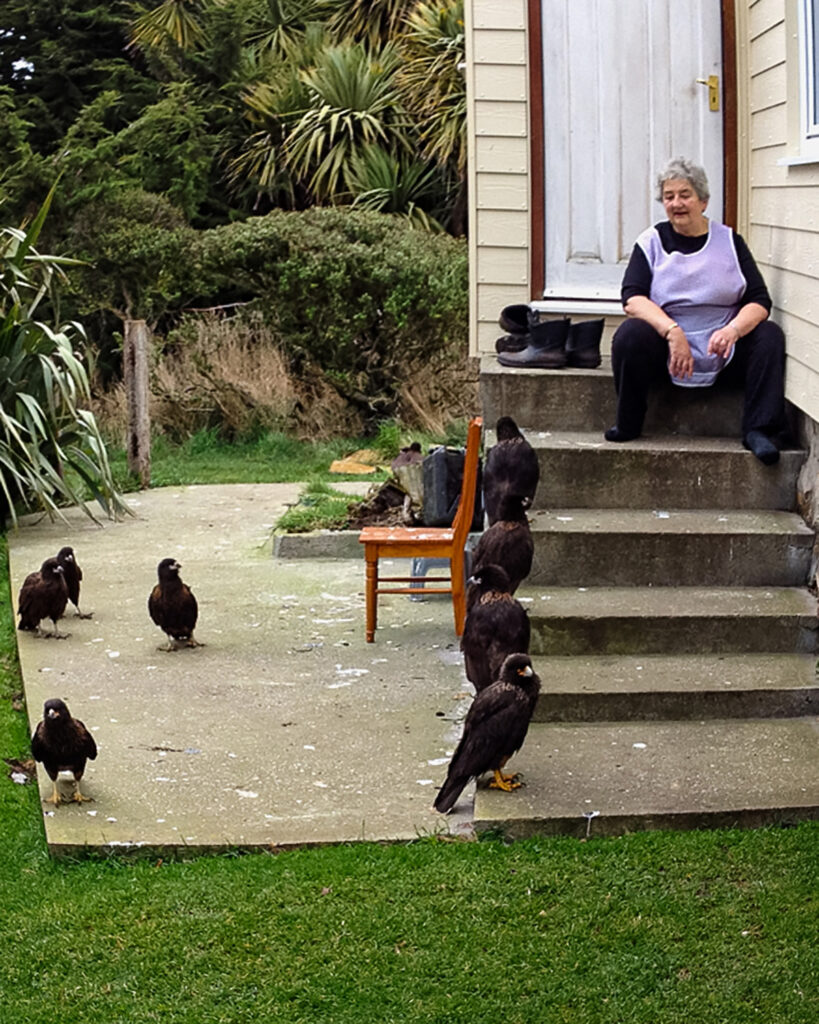

Johnny Rooks are clever, social, curious, and at ease on foot as they are in the air.
If you meet one you’re likely to have the rare treat of a wild animal investigating you.
Just like an astonished young Charles Darwin, who visited the islands in 1833.
Darwin was amused and puzzled by the birds, calling them “mischievous and inquisitive,” “quarrelsome and passionate,” and noted that they stole hats, a compass, and other valuable objects from the Beagle’s crew.
Today, young striated caracaras will still playfully nick the hat from your head, or stride up to you to meet your eyes with their probing, questing gaze, as if asking for an interview.
Sadly, you won’t find them in Stanley, aside from a mounted specimen in the national museum. Nor will you meet them on the two main islands of East and West Falkland.
To meet a Johnny Rook in the wild, you’ll need to visit the outlying islands of the archipelago, via the Falkland Islands Government Air Service—or choose one of the few cruises whose itinerary includes them.
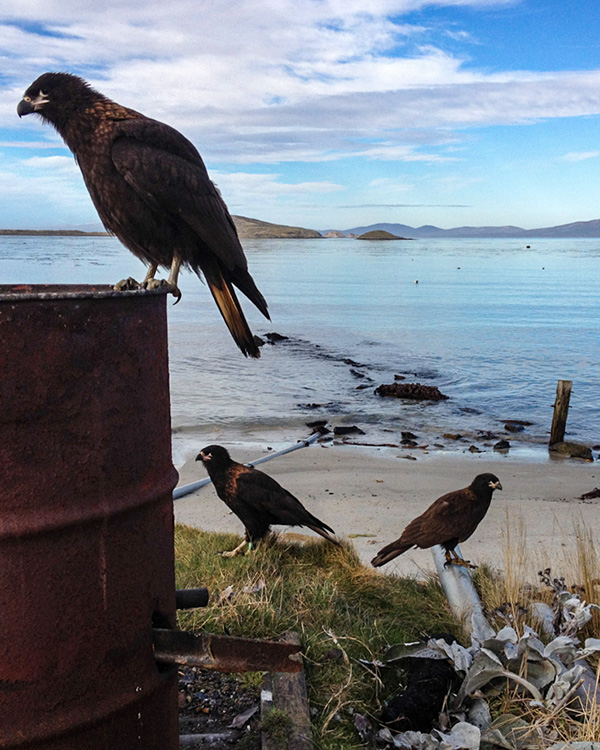
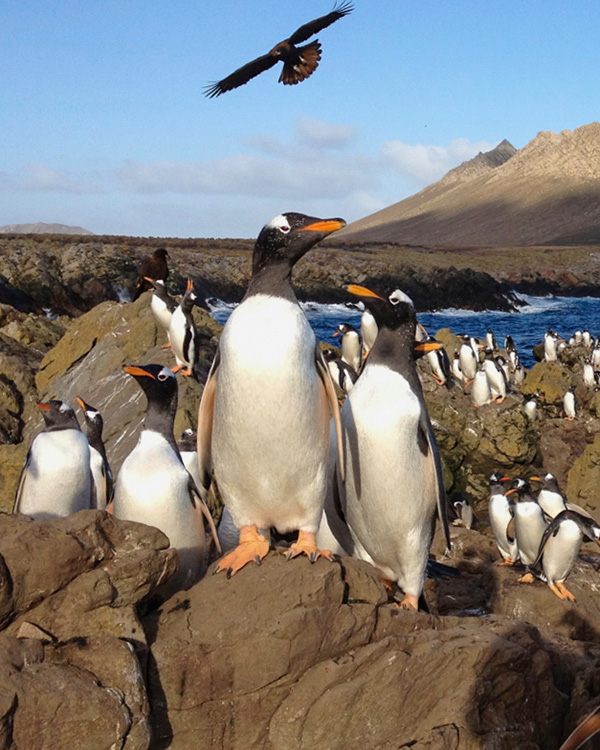
Every island is different, but each one has striated caracaras.
Sea Lion Island is a nature reserve with an on-site lodge near Stanley. Carcass Island, in the Falklands’ wild northwest, is a handsome and predator-free island with breeding colonies of penguins and stands of native tussac grass.
Neighbouring West Point Island has colonies of black-browed albatrosses on its precipitous cliffs.
To the south, New Island also has albatrosses, along with the ruins of a whaling station and a small museum where an 19th-century castaway built a shelter.
Saunders Island, still a working sheep farm, has a small lodge and two self-catering cottages perched near colonies of shags, albatrosses, and penguins.
Mountainous Weddell Island, as large as Malta, has a recently opened lodge and several examples of the Falklands’ famous ‘rivers’ of granite boulders on its dramatic peaks.
A lucky few will even pay a visit majestic Steeple Jason, home to the largest albatross colonies on earth and hundreds of striated caracaras.
Despite this local abundance of Johnny Rooks, there may be no more than a few thousand of these extraordinary birds left on earth — about the same population as giant pandas.
Visitors lucky enough to spend time in this remote corner of the world shouldn’t miss the chance to meet a Johnny Rook. Just make sure you hang on tight to your belongings when you do!

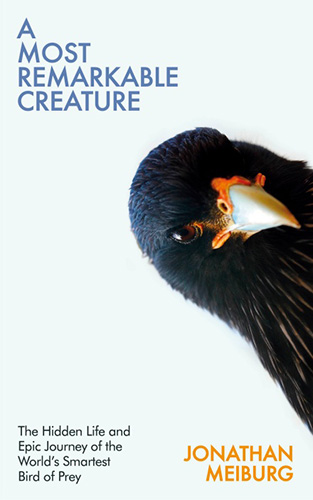
Jonathan’s book, A Most Remarkable Creature: The Hidden Life and Epic Journey of the World’s Smartest Bird of Prey, is out now. Order your copy on Amazon or Bookshop.org.
Main image: A curious adult Johnny Rook on New Island in the Falklands (© Jonathan Meiburg)






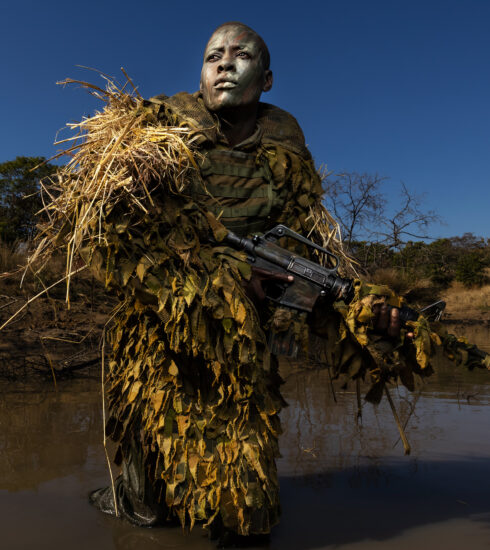
Conchscooter
2 years agoA great book. I’m not he really that interested in birds but I love quirky stories and history and this fun read is full of I imagined facts. A fascinating and highly enjoyable, very accessible read. Highly recommended.
Michael
Key West